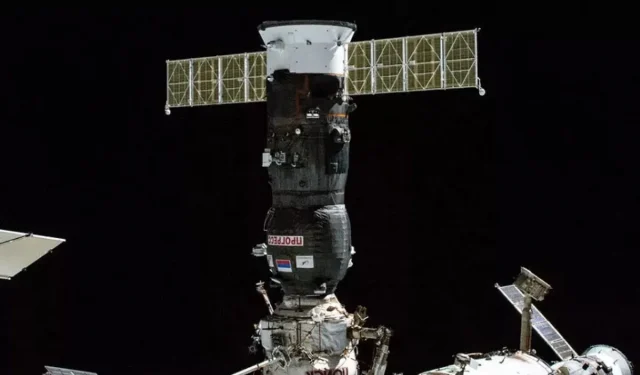Second Russian spacecraft docked to ISS loses coolant

A new leak of information about a Russian spacecraft docked to the ISS. This time the cargo ship Progress became the victim.
A Russian spacecraft docked to the International Space Station has been the victim of a leak. Most recently, the Russian space agency Roskosmos reported on Telegram that a Progress cargo spacecraft docked to the ISS had a cabin depressurization. NASA later announced that a coolant leak was to blame.
New leak of information about a Russian spacecraft docked to the ISS
“The reason for this loss of coolant in the Progress-82 spacecraft is being analyzed,” NASA explained. “The hatches between Progress-82 and the station are open, the temperature and pressure on board the station are normal. The team, who were informed of this cooling loop leak, is safe and continues normal operations on the space station.
According to Space.com, Progress-82 arrived at the ISS on October 28. Prior to this announcement, the spacecraft was due to leave the station on February 17th. It is difficult to say whether Roscosmos will advance this date. Russian Progress ships are designed to disintegrate in the Earth’s atmosphere after completing their resupply mission. In other words, Roskosmos does not have the ability to investigate the origin of this leak. The discovery came on the same day that the second Progress spacecraft docked at the ISS, and less than two months after yet another leak about a Russian spacecraft at the station.
This time, the cargo ship Progress became the victim.
In December, the Soyuz MS-22 spacecraft began to leak coolant as cosmonauts Dmitry Petelin and Sergei Prokopyev prepared for a nearly 7-hour spacewalk. Roscosmos blamed an asteroid for the incident. With the exception of an emergency situation on the ISS, Roscomos classified this ship as unable to carry a crew. Later this month, the agency will launch another Soyuz capsule to return Dmitry Petelin and Sergei Prokopiev, as well as astronaut Frank Rubio, to Earth.
The incident on the ship “Progress”sows doubts. Did a micro-asteroid really hit Soyuz MS-22? Russia has never released images of the collision, and there have been several incidents in the Russian space program in recent years. In 2021, for example, Roscosmos blamed a software glitch on Nauka, an element of the ISS, on poor ignition that caused the ISS to temporarily deviate from its normal orientation.
Leave a Reply